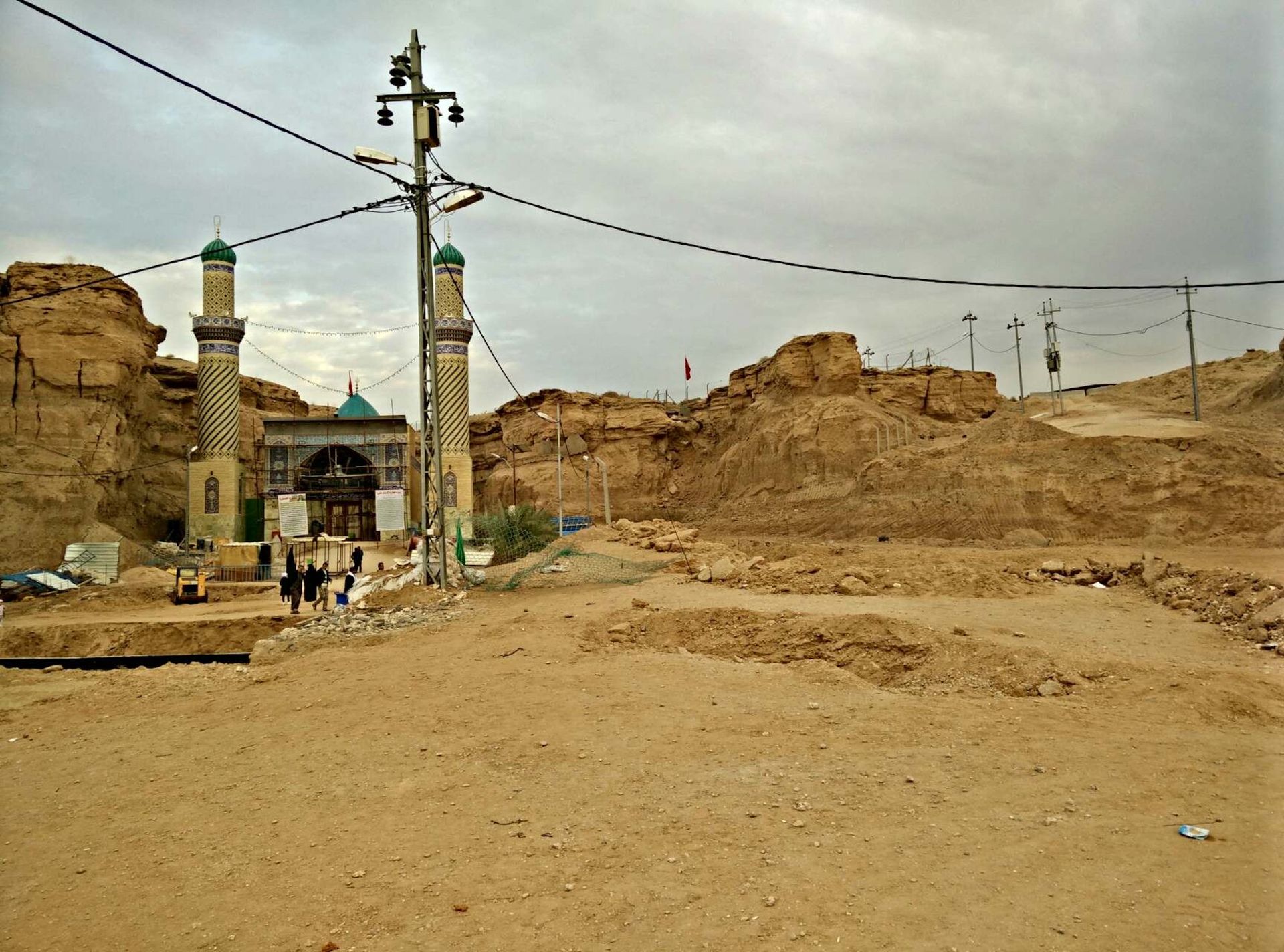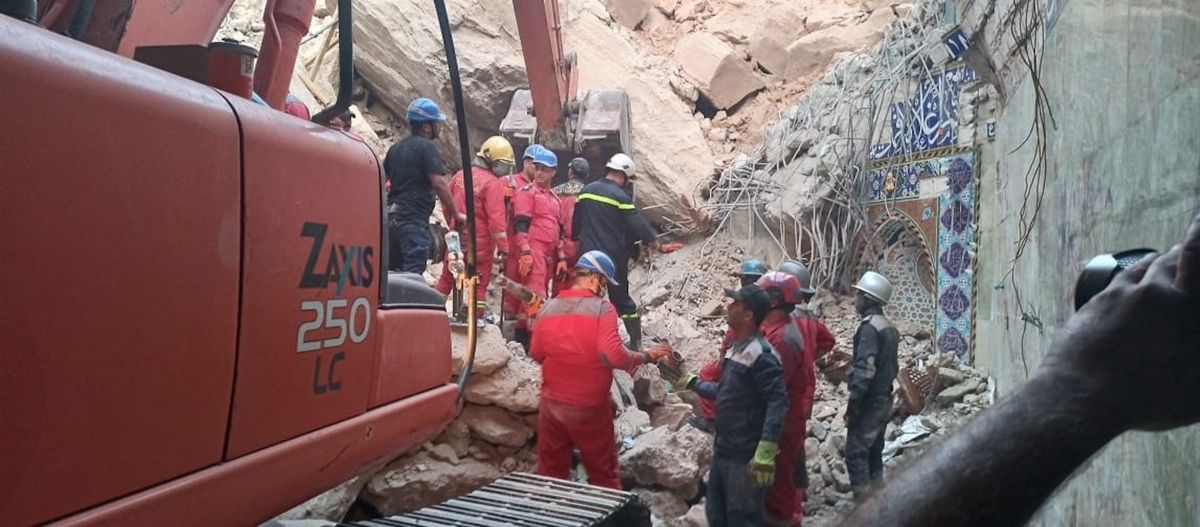The collapse of an Iraqi Shia shrine on Saturday (20 August) some 17 miles west of Karbala is a crucible for the troubled nation. The tragedy, which resulted in the deaths of at least seven pilgrims, encompasses a heady mix of ongoing issues in Iraq including inter-Shia strife, corruption and the control and management of a lucrative religious tourism industry.
In addition to the bodies of 4 women, two men and a child that were pulled from the rubble, there were witness reports that the body of another woman was still un-recovered. “We are continuing the search for other victims,” civil defence spokesman Jawdat Abdelrahman told the AFP news agency on Monday.
The shrine is a popular destination for both Iraqi and Iranian pilgrims, especially in this month of Muharram—the first in the Islamic calendar and the second holiest after Ramadan—and only two weeks since the beginning of Ashura. It houses a spring the Shia believe the Imam Ali ibn Abi Talib (the Prophet Muhammad’s son-in-law and cousin) and his army stopped to drink from in 657CE while on their way to battle. Standing out in the middle of its desert environs, it features a central edifice built in 2013 with intricate blue tile work flanked by two towering minarets.
Ironically, in a nation where drought and desertification have wreaked as much havoc on historic sites as Islamic State, the Iraqi Civil Defence force said it was a moisture issue in an adjacent earth mound that caused the collapse. The resulting landslide hit the roof of the Qattarat al-Imam Ali, as the shrine is known, which then collapsed on top of Shia pilgrims inside.

A view of the Qattarat al-Imam Ali shrine in 2015, following construction of the building that recently collapsed but before the extensive development of the surrounding area. Photo by Haleemwitwit, via Wikimedia Commons.
According to a BBC News report, Daifallah Naim, a nurse with the Popular Mobilisation, a paramilitary force dominated by Shia militias said, “The mountain had been collecting water and, unfortunately, nobody had noticed.”
But many Iraqis fear there were other forces at work, besides natural ones.
As Iran’s influence lessens in Iraq, political turmoil after a contentious election 10 months ago that has left the nation without a functioning government has heightened inter-Shia strife. Firebrand cleric Muqtada al Sadr—whose Sadrist party won the election but withdrew recently when they couldn’t form a coalition—used the occasion to score points.
According to the state owned Iraqi News Agency, Sadr offered his condolences to victims but also tweeted, “Once again, suspicions of corruption are causing civilian casualties in Qattara.” He called on the government to order an “immediate and serious investigation in order to reveal the truth so that corruption does not reach mosques and places of worship, as it has affected state institutions and ministries”.
The shrine is under the responsibility of the Shia Endowment, formed by the US-backed Provisional Governing Council in 2003, which replaced the Baathist-era Ministry of Religious Affairs with special agencies governing Sunni, Shia, Christian and Yezidi sites. The idea was to end a perceived “Sunni bias”, but the result was fierce rivalry over control of religious tourism and sectarian designation of shrines whose rich heritage was not easily reduced to simplistic definitions.
On 23 July, the chairman of the Shia Endowment Bureau, Haider al-Shammari, announced a series of conferences would take place “to prepare joint programs and decisions to be submitted to the government and the relevant ministries (including Finance and Planning) in order to better serve the pilgrims”.
Fida Al Mawla, a heritage expert and professor at the University of Wasit (around 100 miles east of Karbala) recalls visiting the Qattarat al-Imam Ali in the 1990s, when“it was a place surrounded by holiness and spirituality. It was very natural without buildings or domes. It was a sand rock from which one drop of water came down every 10 seconds and these drops formed a small pond ofno more than one meter in diameter, next to a tall palm tree”.
“I was never happy when they turned it into a big shrine as if it were a religious tomb,” she says of the site that has now become a kind of tourist carnival complete with a ferris wheel. “I felt it lost something of its sanctity due to greed—which resulted in Saturday’s disaster.”


